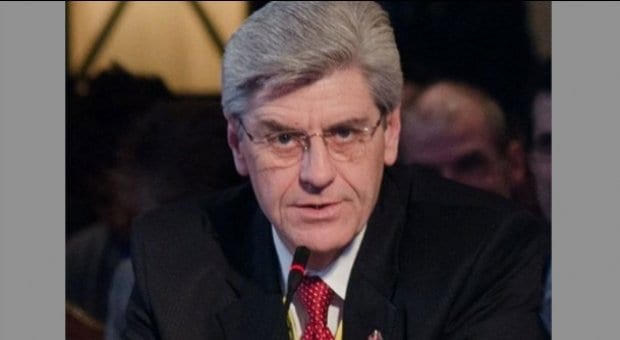Mississippi’s legislature has approved the final version of a bill that would allow businesses and individuals to refuse services on religious grounds, the Human Rights Campaign says in a press release.
The measure is now headed to Governor Phil Bryant’s desk for his signature or veto.
Dubbed the “turn away the gays” bill, its opponents say it would effectively permit discrimination against LGBT people if enacted.
The Religious Freedom Restoration Act states, in part, that “laws ‘neutral’ toward religion may burden religious exercise as surely as laws intended to interfere with religious exercise” and that government “should not substantially burden religious exercise without compelling justification.” The measure also seeks to “provide a claim or defense to persons whose religious exercise is substantially burdened by government.”
It also states that government “shall not substantially burden a person’s exercise of religion even if the burden results from a rule of general applicability,” except in the context of furthering “a compelling governmental interest,” or if it is proven that it is “the least restrictive means of furthering that compelling governmental interest.”
HRC state legislative director Sarah Warbelow says the bill has “the effect of making LGBT people strangers to the law.”
“Before Mississippi has had the opportunity to robustly discuss the lived experiences of LGBT people, this bill would hollow out any non-discrimination protections at the local level or possible future state-wide protections. Just as we’ve seen in other states, this bill is bad for business, bad for the state’s reputation, and most of all, bad for Mississippians,” says Warbelow, who called on the governor to veto it.
The Washington Blade quotes a spokesperson from the Mississippi office of the American Civil Liberties Union (ACLU) as saying lawmakers have not justified why the measure is needed and raises the prospect that it could spark a slew of litigation against the government that taxpayers will end up paying for. The report points out that neither sexual orientation nor gender identity is currently included as protected grounds under the state’s civil rights statutes.
The Mississippi bill is similar to one that recently made it past Arizona’s legislature before being stopped in its tracks by the state’s governor, Jan Brewer, who vetoed it after facing mounting pressure from powerful corporate and political interests to do so.
In a Feb 26 letter to the president of the Arizona State Senate, Brewer said the proposed bill was “broadly worded and could result in unintended and negative consequences,” noting that while the legislation sought to protect businesses, the business community “overwhelmingly opposes the proposed law.”


 Why you can trust Xtra
Why you can trust Xtra


